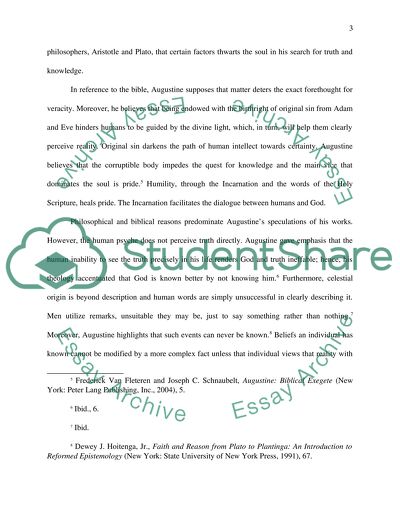Cite this document
(“Augustine's Contribution to Epistemology Essay Example | Topics and Well Written Essays - 1500 words”, n.d.)
Augustine's Contribution to Epistemology Essay Example | Topics and Well Written Essays - 1500 words. Retrieved from https://studentshare.org/religion-and-theology/1434624-augustine-s-contribution-to-epistemology
Augustine's Contribution to Epistemology Essay Example | Topics and Well Written Essays - 1500 words. Retrieved from https://studentshare.org/religion-and-theology/1434624-augustine-s-contribution-to-epistemology
(Augustine'S Contribution to Epistemology Essay Example | Topics and Well Written Essays - 1500 Words)
Augustine'S Contribution to Epistemology Essay Example | Topics and Well Written Essays - 1500 Words. https://studentshare.org/religion-and-theology/1434624-augustine-s-contribution-to-epistemology.
Augustine'S Contribution to Epistemology Essay Example | Topics and Well Written Essays - 1500 Words. https://studentshare.org/religion-and-theology/1434624-augustine-s-contribution-to-epistemology.
“Augustine'S Contribution to Epistemology Essay Example | Topics and Well Written Essays - 1500 Words”, n.d. https://studentshare.org/religion-and-theology/1434624-augustine-s-contribution-to-epistemology.


